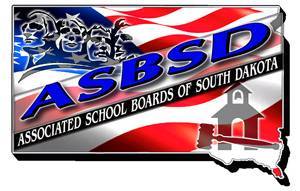ASBSD Policy Alert is your source for the latest updates, commentary and information on school board policy. A version of the article below appeared in the May, 2014 edition of the Bulletin.
Many school boards have a policy in which the school board adopted Robert’s Rules of Order.
Policies generally say the board will follow Robert’s Rules of Order unless modified by school board policy or state Robert’s Rules of Order will be taken as authority and followed if there is a dispute regarding the parliamentary procedure to be used at any point during the meeting.
Often people think that Robert’s Rules of Order, written by an army engineer, Brig. General Henry Martyn Robert and published in 1876, must be followed when conducting a school board meeting.
However, there is nothing in statute that requires school boards to follow Robert’s Rules of Order. If Robert’s Rule of Order is to be followed during school board meetings, that requirement is the result of school board policy or being designated during the annual meeting as the parliamentary rules to be followed.
There are only a few South Dakota statutes that address the procedure to be followed by a local school board:
- SDCL 13-8-10 refers to the annual school board reorganization meeting held each July and states “a majority of the members of the school board constitutes a quorum for the purpose of conducting business” and “any board action may be taken if it is approved by the majority of the members voting.”
- SDCL 1-25-1 requires the school board to identify the specific provision in the executive session statute and SDCL 1-25-2 says an executive session can only be held on a majority vote of members present and voting.
- SDCL 1-27-1.18 does not allow a school board to take any official action on the recommendations, findings or reports presented by a board appointed committee until the meeting following the committee’s presentation.
Simply adopting Robert’s Rules of Orderas the authority and the procedure to be followed during school board meetings may be inviting, but school boards should consider several things when reviewing the school board policy related to parliamentary procedure.
First, some people (if not the majority of people) find the rules complicated, difficult to know, difficult to understand and difficult to apply. There are 816 pages in the latest revision (11th Edition) of Robert’s Rules of Order Newly Revised. How many school board members, superintendents or business managers would be considered experts when it comes to knowing Robert’s Rules of Order and all of its intricacies?
If the complexity of Robert’s Rule of Order is not sufficient reason to question whether or not the school board should be required to follow the rules of parliamentary procedure as set forth in Robert’s Rules of Order, then consider the fact that Robert’s Rules of Orderwas not written with local school boards and other units of government in mind.
Robert’s Rules of Order say no member can be prohibited from voting because of an actual or perceived conflict of interest and merely says a member should not vote on a motion if a member has a direct personal or financial interest in a motion under consideration. (RONR, 11th ed., p. 407, ll. 21-31)
SDCL 6-1-17 and the South Dakota Supreme Court decision in Hanig v. City of Winner (SD 2005) tell us that a governing board member cannot participate in discussion and voting when that governing board member has a conflict of interest.
Another example of Robert’s Rules of Order not being designed with local governing boards in mind is Robert’s Rules of Order says votes can be taken in executive session. (RONR, 11th ed., pp. 95-96.)
However, SDCL 1-25-2 says any official action concerning an executive session matter must be made in an open official meeting.State law take precedence over local school board policy.
A policy adopting Robert’s Rules of Order as the parliamentary procedure to be followed should not be adopted just for the sake of adopting a policy.
ASBSD has amended its sample school board policies related to parliamentary procedures and removed the sample policy language that required Robert’s Rules of Order to be used during school board meetings.
The ASBSD sample policy, as amended, says Robert’s Rule of Order is to be a guide for conducting school board meetings, but it is not intended, nor is it required that there be strict compliance with Robert’s Rules of Order.
The amended sample policy also states the Board President/Chairperson makes decisions related to parliamentary procedure that may arise during the course of a meeting; subject to the right of any Board member to appeal the decision of the Board President/Chairperson to the full Board, which shall decide the procedural issue or question.
For those school boards that have a board policy that requires the school board to follow Robert’s Rules of Order, it is ASBSD’s recommendation they also consider amending their policy so Robert’s Rules of Order is only a guide for conducting the meeting and strict compliance with Robert’s Rules of Order is not required. ASBSD sample policy BDDE: Parliamentary Procedure, is available for your review.
